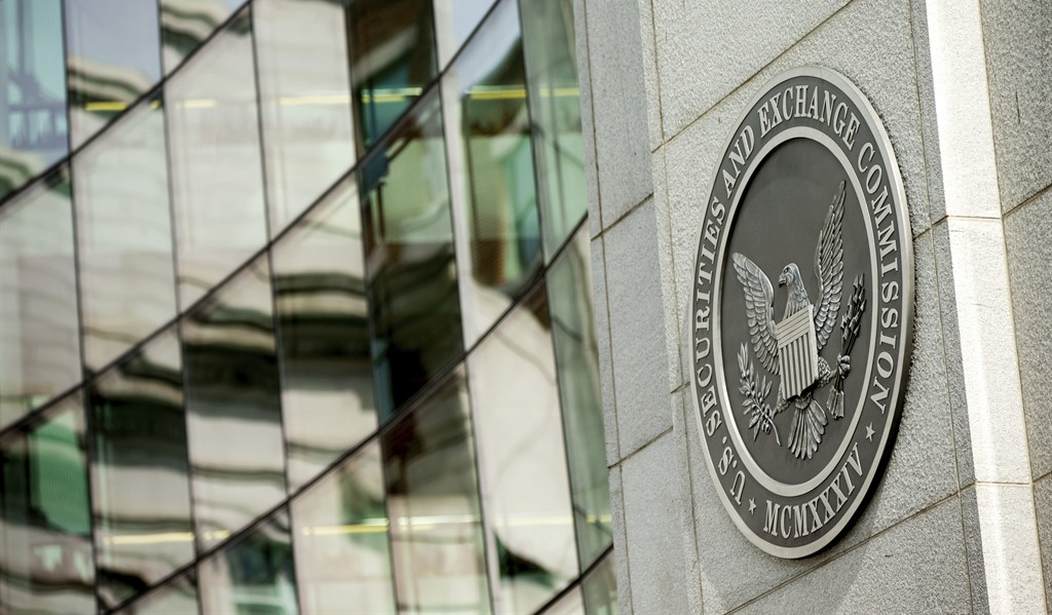In recent months, the Securities and Exchange Commission (SEC) has finally proposed amendments to rules and reporting forms regarding how investment funds utilize the “ESG” label. The SEC is right to be worried about greenwashing and its negative impact on investors, but they are late to the game, just as they’ve been dilatory or, at times, entirely remiss in detecting many abuses and outright frauds over the years. Created in the midst of the Great Depression, the Securities and Exchange Commission is failing in one of its core purposes: protecting investors.
Related: A New Investment Fund Is Taking the Fight Over ESGs to the Boardroom
Legendary corporate activist and NBC Radio host Wilma Soss (1900-1986) had the same complaint about the SEC back in her heyday. She had what one might call a love-hate relationship with the agency. Unlike the Depression-era New York Stock Exchange Old Guard, who fought the SEC as unnecessary and redundant, Soss loved the idea of a market watchdog. Nevertheless, she hated that the never well-funded SEC didn’t do a very good job of protecting her people — small investors — from market manipulators and other miscreants.
Soss once went so far as to argue that the SEC actually hurts small investors by making them feel more secure than they should. For example, the SEC does not vouch for the basic soundness, or even legality, of every financial investment. Just ask Bernie Madoff’s investors. Soss died before Madoff’s company turned fraudulent in the 1990s, but she wouldn’t have been surprised that the SEC missed the massive Ponzi scheme. And although the SEC once incarcerated a celebrity (Martha Stewart) for insider trading, it apparently lets powerful politicos get away with far worse.
George Washington University Law School’s Larry Cunningham recently revealed that the SEC is now more concerned with political virtue signaling on climate issues than protecting small investors. Soss, the subject of our new book, Fearless: Wilma Soss and America’s Forgotten Investor Movement, would not be amused.
Soss became an ardent supporter of small investors after the Second World War when she began investing on her own the money she made in her public relations consultancy, after having lost a small inheritance at the hands of a not-so-trustworthy trustee after the Great Crash of 1929.
As the Cold War spread across the globe in the late 1940s and early 1950s, Soss came to see small stockholders as a prophylactic to protect America from the presumably potent allure of communist ideology. Workers and consumers who owned slices of the American corporate pie would profit from labor and social stability and thus support economic growth-inducing public policies instead of special interest legislation.
Soss believed that little investors should do their homework on potential investments, but also realized that there were limits to what they could do to protect themselves, if companies disclosed faulty or misleading information.
Such shady shenanigans could defraud small investors, thus threatening Soss’s anti-communist small stockholder utopia. Stockbrokers, who, she continually reminded listeners of her radio show, Pocketbook News, were mere order-takers and not financial fiduciaries, needed to be checked lest they induce naive new investors to buy too high, sell too low, or simply trade too often.
If the SEC could keep stockbrokers in line and tamp down on Ponzi schemes and other obvious frauds, Soss would applaud it, though as a lifelong Republican she found most government regulations to be expensive boondoggles. She called for more funding for the agency so it could fulfill its promises.
However, the SEC continued to disappoint Soss, who contended that it usually catered to big investors, primarily watching out for them instead of the “odd lotters” who bought only a few shares at a time. Regulated brokerage commission structures favoring larger traders told the tale. Thankfully, in 1975 the SEC finally succeeded in deregulating brokerage commissions, allowing the competition, innovations and new technologies that would radically drive down brokerage commission prices for the “little guy” on Wall Street.
By then, however, many individual investors had given up on direct investment in the stock market, which was again in the doldrums. While day traders had their day during the dotcom boom and more recently individual traders made Wall Street bets that reversed the fortunes of GameStop and other downtrodden companies, most investor dollars continue to pour into mutual or exchange traded funds (ETFs).
In a sense, then, Americans today possess the large stake in the economy that Soss wanted. But it is a passive stake versus the direct ownership of individual stocks. Not coincidentally, the political appetite for big bailouts, corporate welfare, and other forms of collectivism waxes while interest in the heart of the American enterprise system — competition for consumer and investor dollars in free markets — wanes.
The SEC is failing small investors in other ways, too. Due largely to the SEC’s overregulation of many aspects of publicly-traded corporations, dollars have been pouring into private equity investments that small investors do not have easy or cheap access to. For the most part, Joe and Josephine Q. Public invest (either directly or indirectly) in publicly-traded companies, the number of which, according to the Federal Reserve, has plummeted from a high of 30 per million people in 1996 to just 12.5 today, the same number as in 1975, when the US economy was much smaller. No wonder stock prices trended upward (the past year notwithstanding), with more people and more dollars chasing fewer opportunities.
In the end, we must conclude that Soss was wrong. The SEC doesn’t need more funding. To save America’s economic soul, it must be defunded and replaced by the cleansing power of transparent sunlight.









Join the conversation as a VIP Member